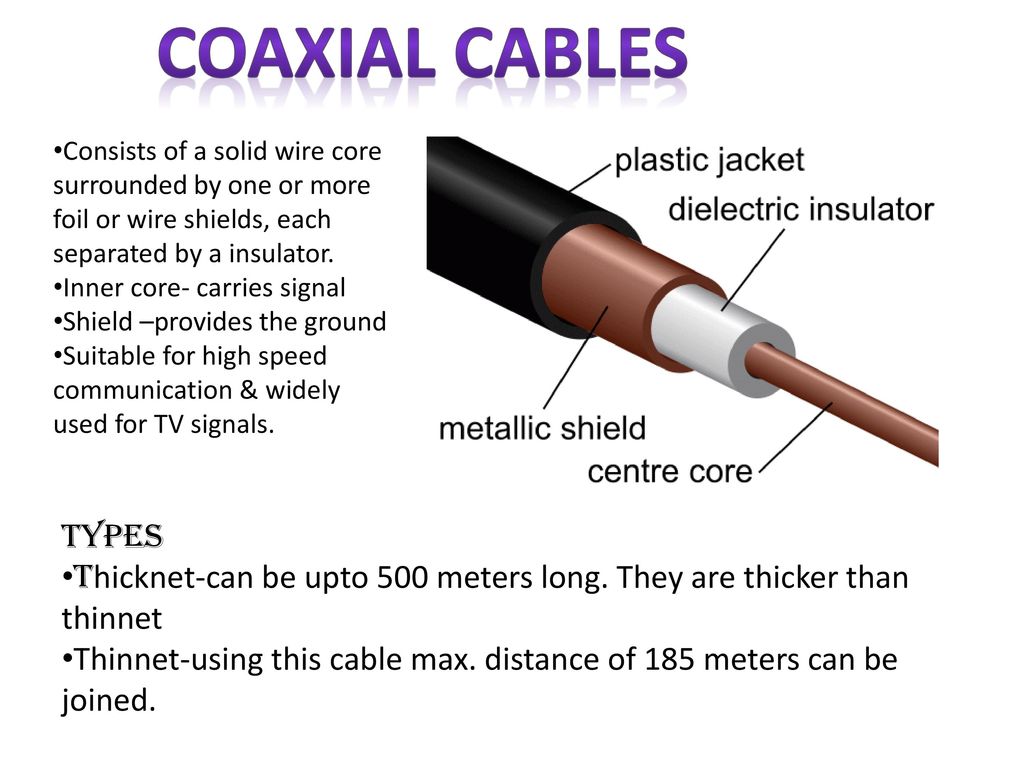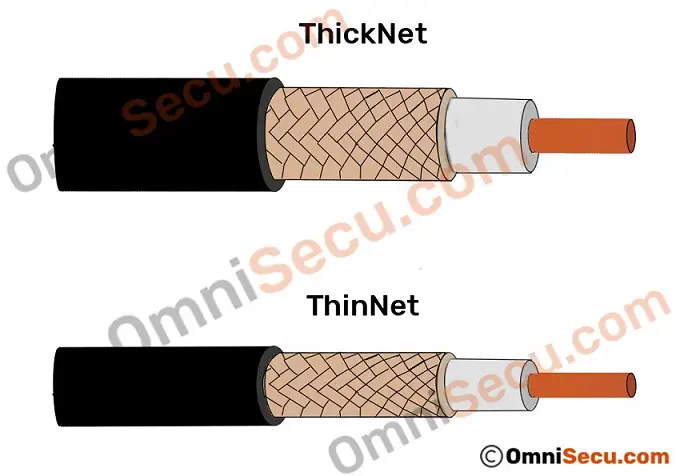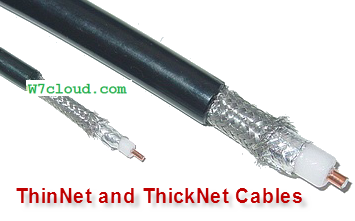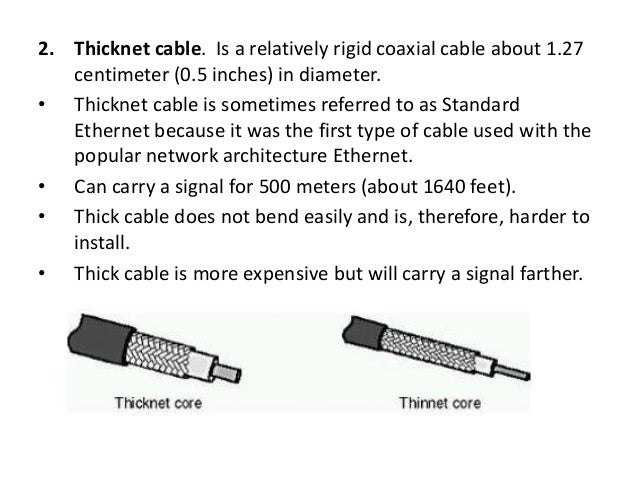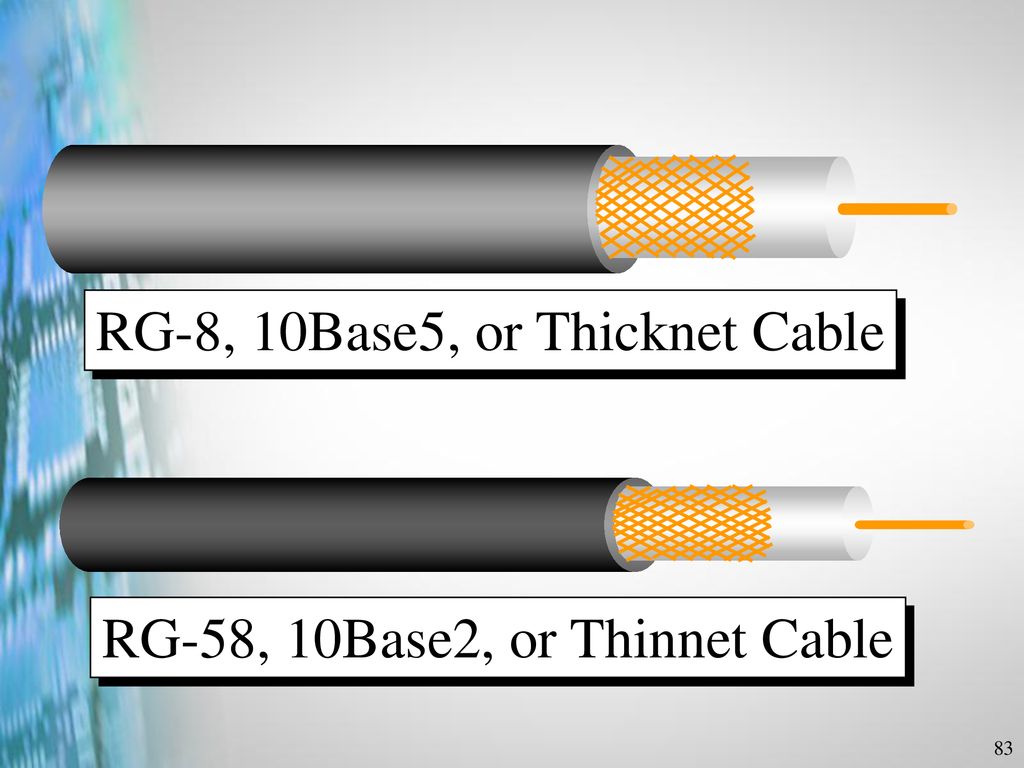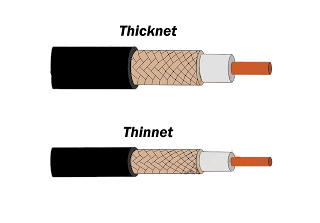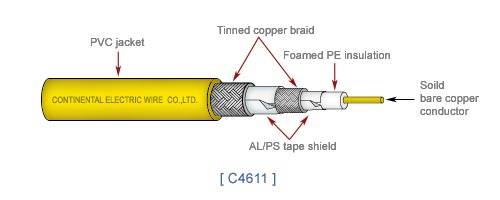During the mid to late 1980s this was the dominant 10 mbit s ethernet standard but due to the immense demand for high speed networking the low cost of category 5 cable and the popularity of 802 11.
Coaxial cable types thinnet and thicknet.
Base means baseband and 5 denotes 500 meter max.
10base5 also known as thick ethernet or thicknet was the first commercially available variant of ethernet the technology was standardized in 1982 as ieee 802 3.
10base2 also known as cheapernet thin ethernet thinnet and thinwire is a variant of ethernet that uses thin coaxial cable terminated with bnc connectors to build a local area network.
Bandwidth the official name for thicknet 10base5 indicates that the technology supports a data transfer speed or bandwidth of up 10 megabits per second and a maximum segment length of 500.
Thinnet on the other hand uses a thinner type of coaxial cable known as radio grade 58 which is similar to the radio grade 6 cable used for cable tv.
Thicknet is also referred as 10base5 systems where 10 means 10mbps speed.
The three main types of media found on lans include coaxial cable twisted pair and fiber optics.
Thicknet and thinnet and the structure of coaxial cable type of coaxial cables and their connectors.
Rg 8 u cable is used as thick cable in thicknet based lan network.
10base5 uses a thick and stiff coaxial cable up to 500 meters 1 600 ft in length up to 100 stations can be connected to the cable using vampire taps and share a single collision domain with 10 mbit s of bandwidth shared among them.
Today my topic is about two early ethernet technologies.
